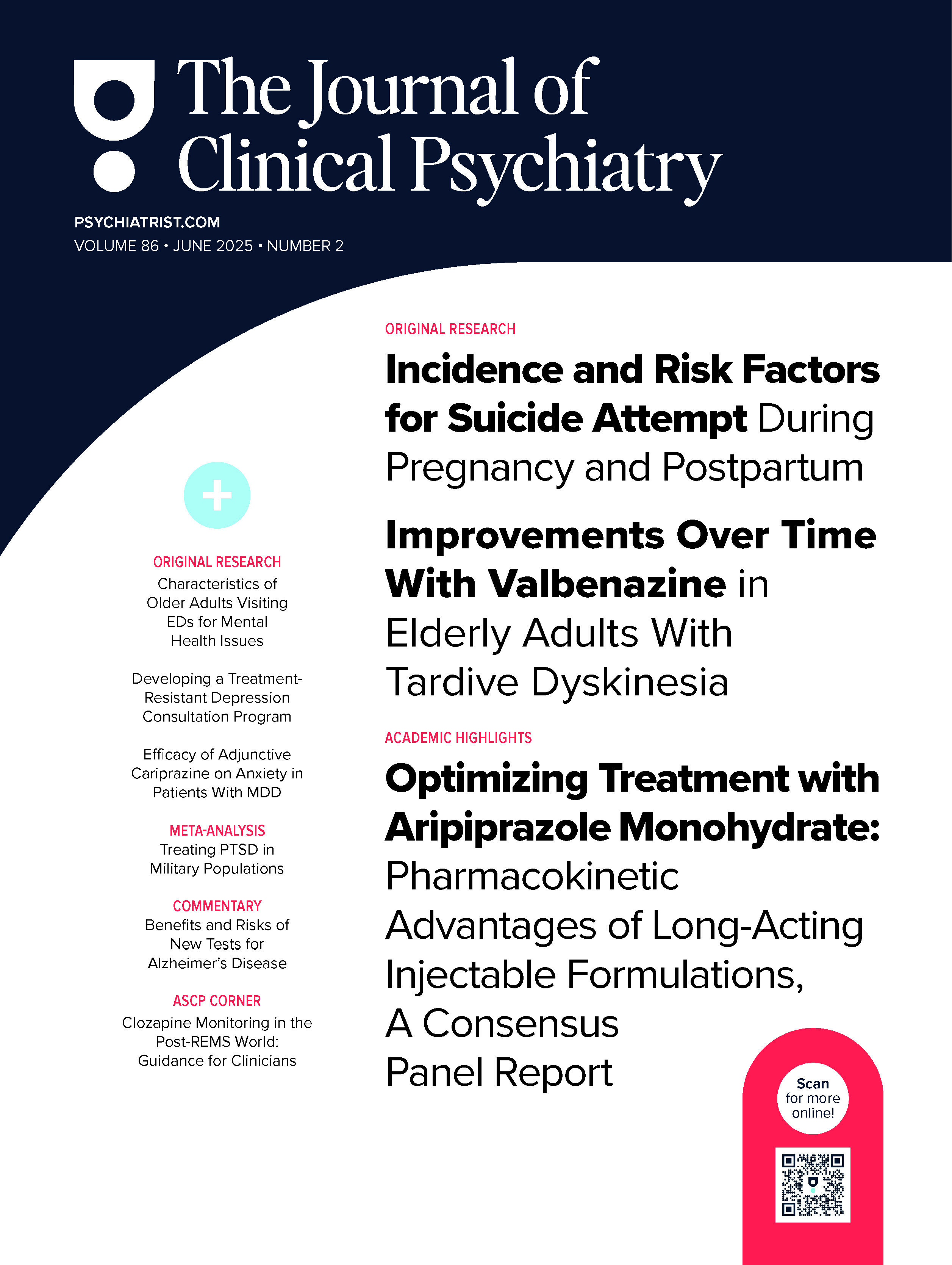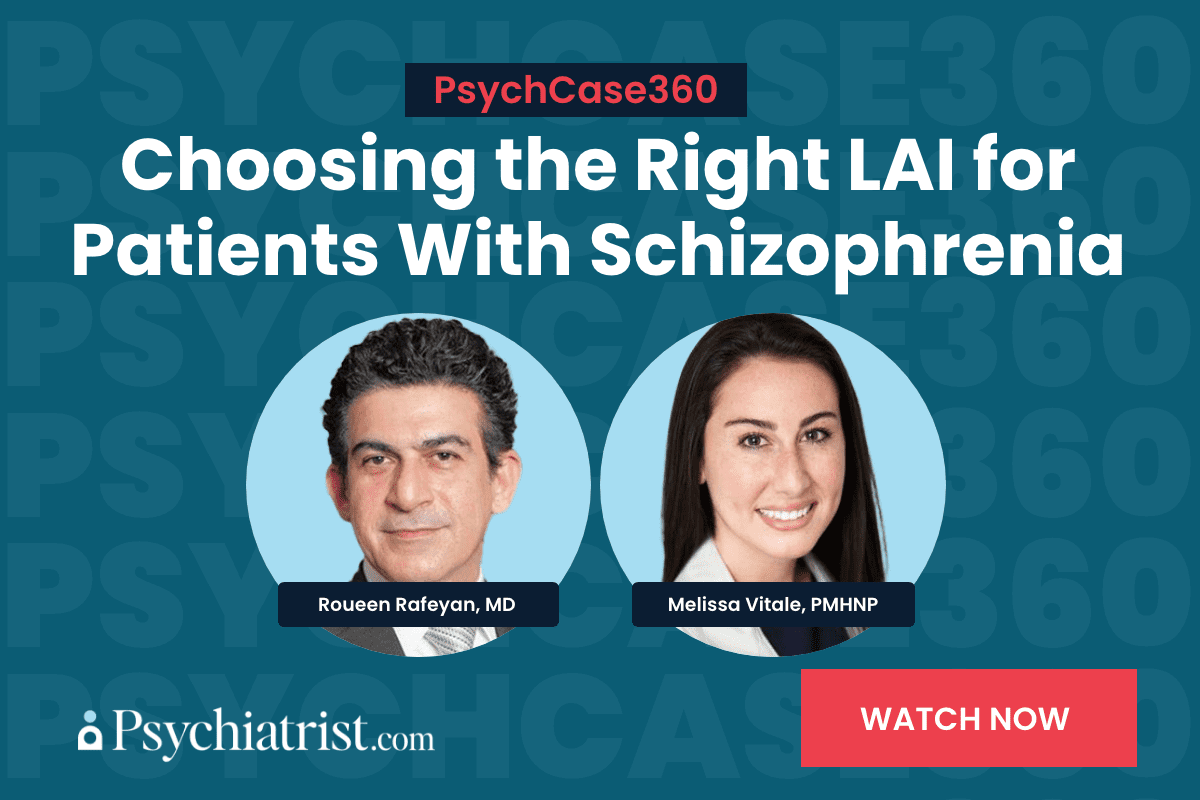Objective: Psychiatric trainees seek personal psychiatric treatment for a variety of reasons including educational objectives, symptoms relief, or functional impairment. Data on the rate of psychiatric treatment among residents and the attitudes of residents toward personal treatment are limited. The purpose of this study was to determine the frequency and types of psychiatric treatment among residents and to assess residents’ attitudes toward treatment.
Method: A 51-item questionnaire was mailed to all postgraduate year (PGY)-2 through PGY-4 psychiatric residents training in Manhattan in the spring of 2002 (N = 288). Questionnaires were anonymous. Significance was tested using McNemar test of symmetry, dependent-groups t tests, or 2-way contingency table analysis where appropriate. The study was conducted from March 2002 through June 2002.
Results: Forty-eight percent of residents returned the questionnaire. Among respondents, 57% were in individual psychiatric treatment, predominantly individual psychotherapy or psychoanalysis. The rate of medication treatment was 18%, corresponding to a 31% rate of medication use among those in psychotherapy. Residents felt that their training programs explicitly encouraged psychotherapeutic treatment but not medication treatment, and they were more likely to tell other residents and faculty about personal psychotherapy as compared with personal medication use. Residents felt that the use of medication carried “significant” stigma, while personal psychotherapy did not.
Conclusion: In this sample, residents believe there is “significant” stigma associated with the use of psychotropic medication, while psychotherapy is seen as a respected and valued educational and therapeutic experience. These findings deserve the attention of educators and emphasize the need for further research in this area.
Please sign in or purchase this PDF for $40.00.




